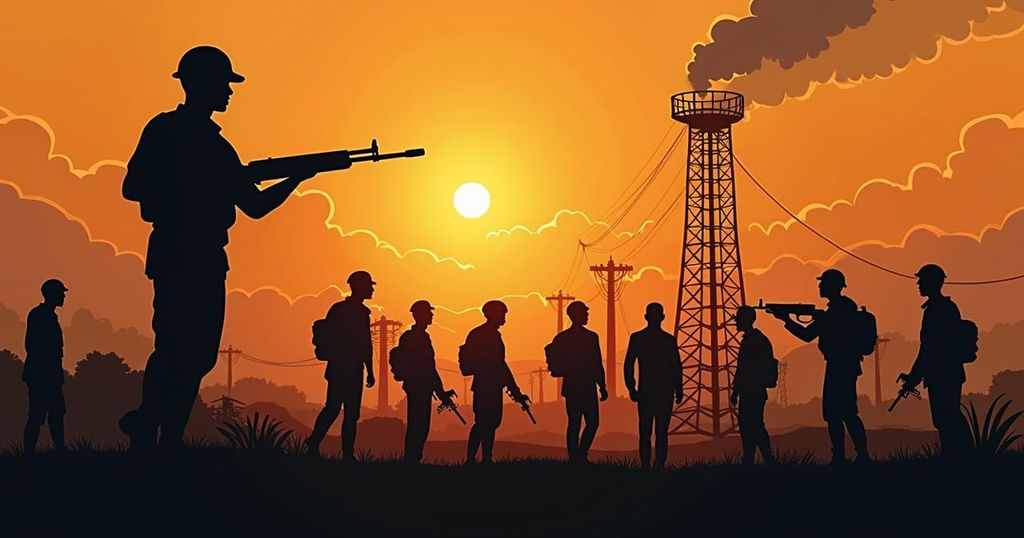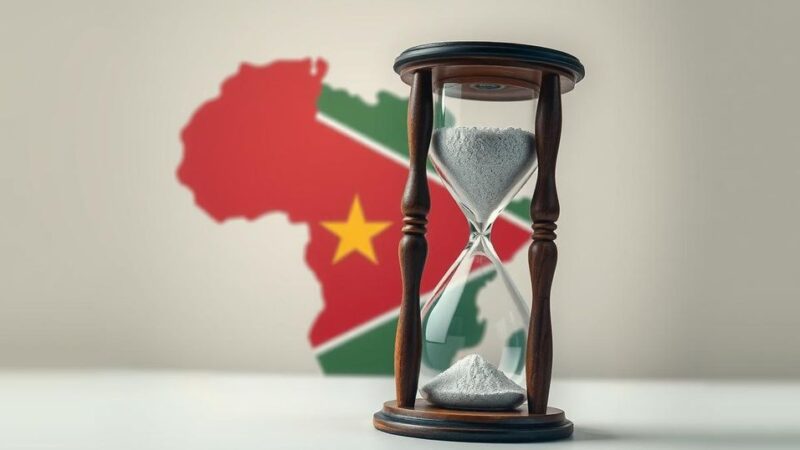Dr. Joseph Siegle of the Africa Center for Strategic Studies discusses the severe ramifications of South Sudan’s failure to pay civil servants and soldiers, cautioning that this could lead to state collapse and increased lawlessness. He critiques the political class for their lack of will to conduct elections and emphasizes the need for empowering civil society in guiding the nation towards democratic governance. The ongoing conflict in Sudan further complicates the humanitarian crisis in South Sudan, necessitating strategic reforms and collaborative efforts for a stable future.
Dr. Joseph Siegle, the Director of Research at the Africa Center for Strategic Studies, elucidates the dire situation in South Sudan where non-payment of civil servants and armed forces has reached a critical point. He warns that this negligence signifies weak governance and may plunge the nation into a failed state characterized by escalating lawlessness, power shifts towards warlords, and potential fragmentation. In an exclusive interview with Radio Tamazuj, Dr. Siegle emphasizes that the repeated extensions of the transitional government—most recently to December 2026—highlight political leaders’ reluctance to hold elections, thereby prolonging their grip on power. He cites the lack of political will as the fundamental obstacle to democratic advancement since independence, driving home the necessity for established independent bodies capable of facilitating necessary electoral processes. Moreover, the ongoing conflict in Sudan exacerbates South Sudan’s humanitarian crisis, with thousands of refugees entering the country and straining its limited resources. Dr. Siegle advocates for empowering civil society, which he deems the most legitimate sector to guide the country’s transition toward democracy. He underscores the critical need for a unified and accountable security sector to address the pervasive insecurity, positing that a drive toward inclusivity in governance is essential for sustainable political stability. In summation, Dr. Siegle believes that only through genuine collaboration among civil society and political actors can South Sudan hope to navigate its tumultuous path forward.
Dr. Joseph Siegle’s insights into South Sudan’s political landscape come against a backdrop of protracted instability following its independence in 2011. The nation has struggled with governance challenges, economic turmoil, and recurrent conflict—all of which are compounded by a lack of democratic institutions and processes. As the country faces dire humanitarian needs, the importance of establishing a cohesive governance structure becomes vital for lasting peace and reforms. The prolonged delays in political transition, notably the recent postponement of elections, emphasize systemic issues that demand immediate attention to avert a potential state collapse.
In light of the multifaceted crisis besetting South Sudan, Dr. Joseph Siegle articulates a pivotal call to action for both political actors and civil society. Acknowledging the dire consequences of governance failures, he urges the establishment of independent mechanisms to facilitate democratic transition and to pay civil servants and armed forces adequately. Empowering civil society as a legitimate force for change may provide a pathway to restoring stability, ensuring that governance is focused on the needs of the citizenry rather than the vested interests of the political elite. For South Sudan to reclaim its trajectory towards democracy and achieve sustainable peace, the collaboration among all stakeholders is imperative.
Original Source: www.radiotamazuj.org






